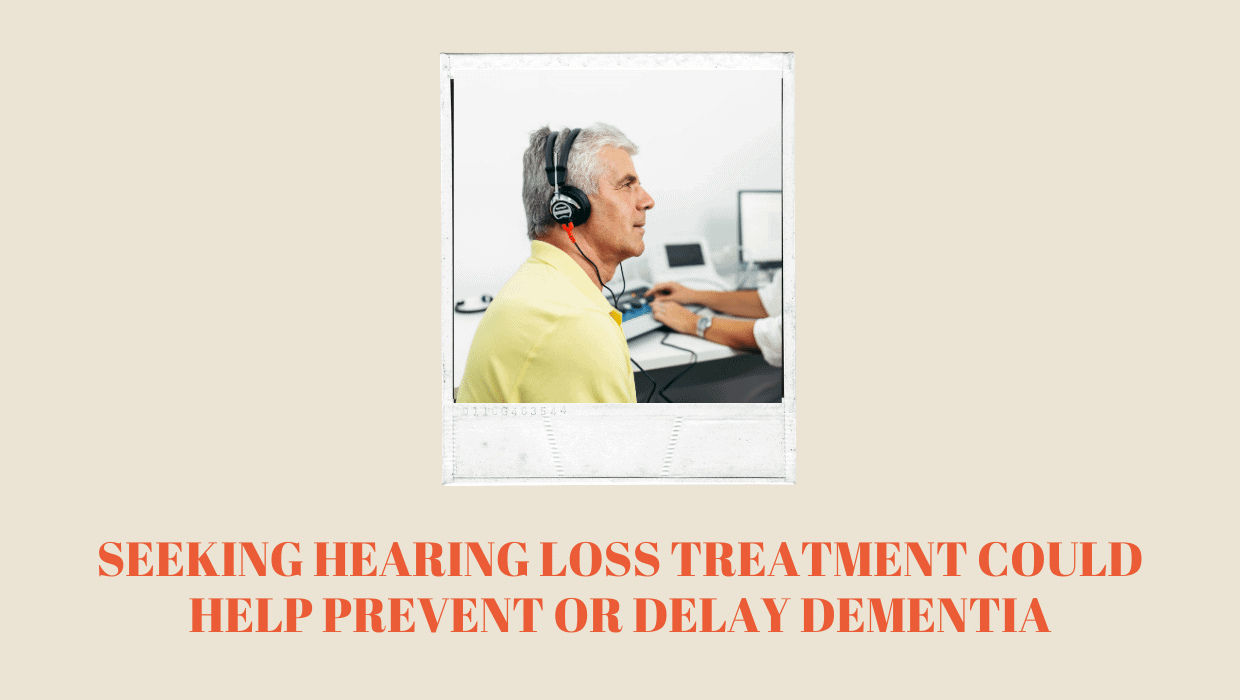Hearing loss can be a normal part of aging. In fact, most older adults will experience some level of hearing loss as they age. While it’s normal to have a hearing loss, living with untreated hearing loss isn’t normal. Older adults who don’t treat their hearing loss often have worse health outcomes than seniors who wear hearing aids. This can include reduced mobility, fewer social interactions, and even a higher risk of dementia and Alzheimer’s disease.
Hearing Loss and Your Overall Health
People of all ages can lose their hearing. Living with a hearing loss has major consequences, and your overall health is affected by your hearing loss.
Social interactions: Hearing loss makes it hard to communicate with your family and friends. You struggle to hear what’s being said and ask people to repeat themselves. People with hearing loss have a hard time staying social. They face feelings of loneliness, anxiety, depression, and social isolation.
Accidents and injuries: Hearing loss can make you more accident prone and reduce your mobility. Have you had a hard time determining where a sound is coming from? When you don’t have a clear picture of your environment, you’re more likely to have an accident or suffer an injury. When you can’t hear a warning honk, or hear someone shout a warning, you may find yourself in an accident.
Hearing Loss and Your Brain
Hearing loss also has a big effect on your brain. Living with untreated hearing loss will change the way your brain works, and you’ll experience more rapid cognitive decline. When you experience hearing loss, your brain doesn’t get all the signals about the sounds around you. You may be missing all the sounds in higher registers, or struggle to hear certain sounds like the chirping of birds, or your grandchildren talking.
The longer you live with untreated hearing loss the longer your brain goes without these signals. Over time, the cells in the brain responsible for hearing those sounds will start to deteriorate, or be used for other tasks. When these cells die, you experience cognitive declines that will affect your brain in profound ways.
Hearing Loss and Dementia
People with untreated hearing loss notice declines in other areas as well, such as having a hard time concentrating on tasks, remembering facts, or even planning for a future event. These cognitive declines lead to a higher risk of developing dementia or Alzheimer’s disease. When the brain isn’t getting enough exercise, like when you’re not hearing all the sounds around you and exercising your auditory centers, you are more likely to develop dementia.
How to Prevent of Delay Dementia
Researchers still haven’t found a cure for dementia or Alzheimer’s disease. However, they have found ways you can prevent or delay the onset of dementia. One easy way to protect your brain is to treat your hearing loss! Living with untreated hearing loss is a big risk factor for developing dementia, so wearing hearing aids that are calibrated to your hearing needs can actually protect your brain. You’ll experience slower cognitive decline, better memory, and a rich social life.
Hearing aids will help you be more social and more active. You’ll spend more time with family and friends, and feel confident in social settings. Being more active will exercise your brain, keeping your brain healthier and preventing damage. Treating your hearing loss will improve your overall health, as well as delaying or preventing dementia.
Seeking Hearing Loss Treatment
Are you ready to do the right thing for your brain and your hearing? It all starts with a perfect hearing aid. Visit us at Advanced Hearing Solutions to find out more about your hearing aids options. We’ll start with a comprehensive hearing test to find out more about your hearing loss. Then, we’ll help you find hearing aids that match your hearing needs and your lifestyle.
Are you struggling to hear in places with a lot of background noise? Do you need a boost to hear the TV? Whatever your hearing needs, we’ll help you find the perfect hearing aids to help you hear clearly. Then, we’ll adjust the hearing devices to match your unique hearing needs, so they’ll help you hear the sounds you’ve been missing.

